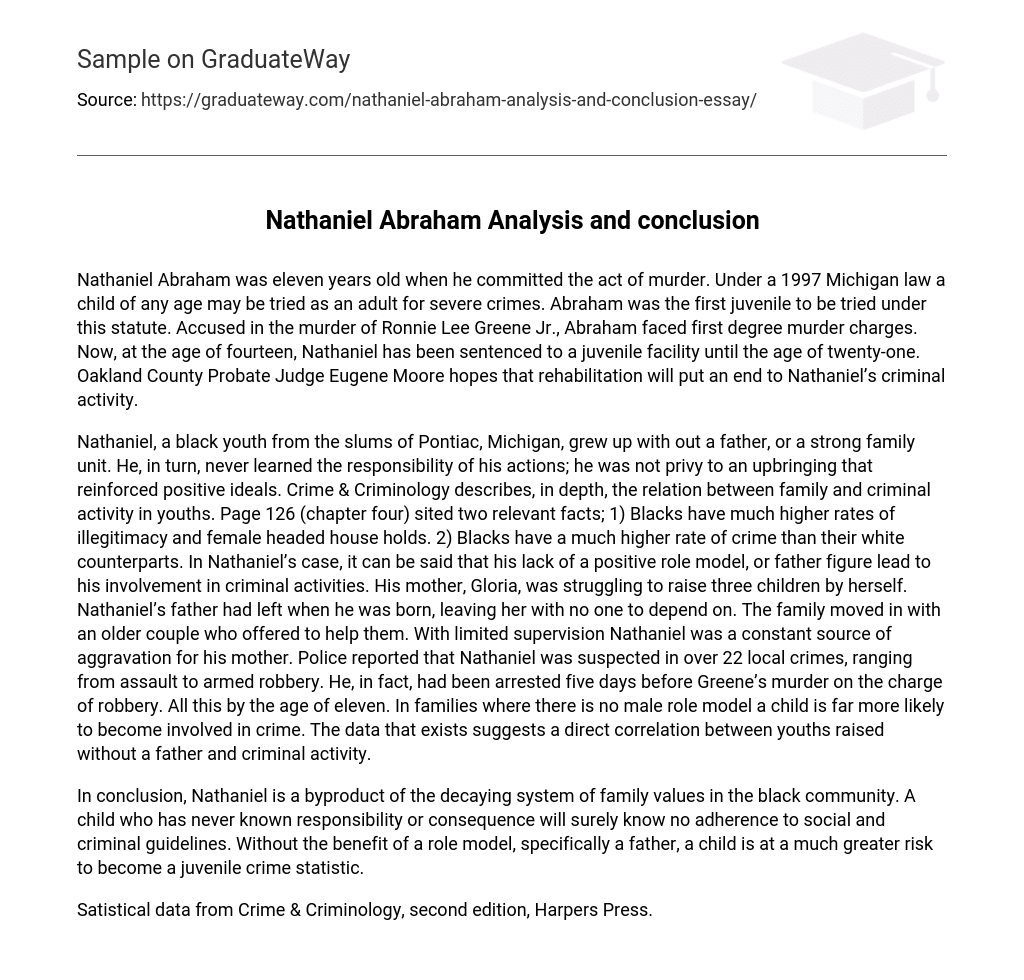Nathaniel Abraham, who was eleven years old at the time, committed a murder, becoming the first juvenile to be tried as an adult under a 1997 Michigan law that allows children of any age to face adult charges for serious crimes. He was accused of first degree murder in the case involving Ronnie Lee Greene Jr. Now, at fourteen years old, Nathaniel has been sentenced to a juvenile facility until the age of twenty-one. Oakland County Probate Judge Eugene Moore aims for rehabilitation to prevent Nathaniel from engaging in criminal activities in the future.
Nathaniel, a black youth from Pontiac, Michigan, grew up in disadvantaged circumstances without a father or strong family support. As a result, he never developed a sense of accountability for his actions and lacked the positive values that should have been instilled in him during his upbringing. The book Crime & Criminology explores the connection between family dynamics and criminal behavior among young individuals. On page 126 of chapter four, two relevant pieces of information are presented: 1) Black communities have higher rates of single parenthood and households headed by females. 2) Compared to whites, blacks have significantly higher crime rates.
In Nathaniel’s case, it can be argued that the absence of a role model or paternal figure contributed to his involvement in criminal activities. His mother Gloria faced difficulties raising their three children alone after Nathaniel’s father abandoned them at birth. They ended up living with an elderly couple who provided some assistance but had limited supervision over Nathaniel. He consistently caused trouble for his mother and was involved in more than twenty-two local crimes ranging from assault to armed robbery as reported by law enforcement officials. Surprisingly, he had already been arrested for robbery just five days before Greene’s murder when he was only eleven years old.
It is widely acknowledged that children who grow up without male role models are much more likely to engage in illegal behavior during their adolescence.
The data that is accessible indicates a clear link between the absence of fathers and engagement in juvenile delinquency.
In summary, Nathaniel is a product of the deteriorating family values within the black community. If a child has not experienced responsibility or consequences, they are unlikely to follow social and criminal norms. Lack of a father figure increases the likelihood of a child becoming involved in juvenile crime.
Statistical data from Crime & Criminology, 2nd edition published by Harpers Press.
The text within the
tags remains unchanged.





